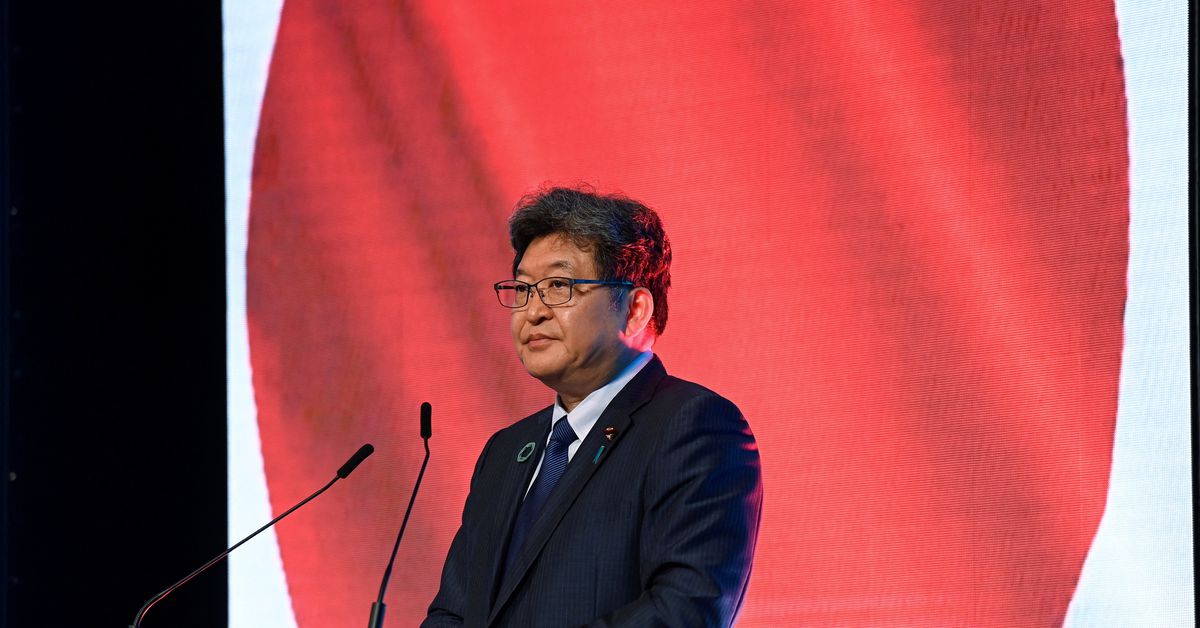Japan hopes to restart four more nuclear reactors by winter
Koichi Hagiuda, Japan’s Minister of Economy, Trade and Industry, speaks at the Sydney Energy Forum in Sydney, Australia July 13, 2022. REUTERS/Jaimi Joy/Pool
Register now for FREE unlimited access to Reuters.com
TOKYO, July 15 (Reuters) – Japan hopes to restart four more nuclear reactors in time to avert any power crunch over the winter, industry minister Koichi Hagiuda said on Friday, a week after the pro-nuclear ruling party won a resounding victory in upper house elections.
“We would like to ensure the operation of a maximum of nine reactors, up from the current five operating now, by revising the construction and inspection periods for some of the nuclear power plants,” Hagiuda told a news conference.
Many of Japan’s nuclear reactors remain idle after a massive tsunami triggered a disaster at the Fukushima Daiichi nuclear power plant in 2011, but the ruling Liberal Democratic Party (LDP) has been eyeing a return to nuclear power as a stable source of energy for resource- poor Japan.
Register now for FREE unlimited access to Reuters.com
Public opinion had broadly opposed nuclear restarts following the Fukushima disaster, but the tide has shifted given rising fuel prices and bouts of unseasonable weather that have triggered calls for energy-saving. read more
Talk of restarting additional reactors came as welcome news for energy companies, with head of the Federation of Electric Power Companies Kazuhiro Ikebe calling them “words of encouragement.”
Still, a nuclear restart requires an extensive approval process overseen by regulators, as well as approval from local communities.
Flaring tensions with Russia have also put Japan on edge.
A decree issued by President Vladimir Putin in late June that seizes control of gas and oil project Sakhalin-2 has threatened to cut off a crucial source of gas supplies for Japan. read more
Gas Association chairman Takehiro Honjo said on Friday there were no immediate concerns over the supply of gas.
But amid the uncertainty, and Ikebe urged “the government act to protect our interests in Sakhalin-2.”
“We must prepare to take all possible steps in the event LNG supply from Russia is halted,” Ikebe said.
Sakhalin-2 supplies 9% of Japan’s liquefied natural gas.
Register now for FREE unlimited access to Reuters.com
Reporting by Sakura Murakami; Editing by Jacqueline Wong & Simon Cameron-Moore
Our Standards: The Thomson Reuters Trust Principles.



Comments are closed.